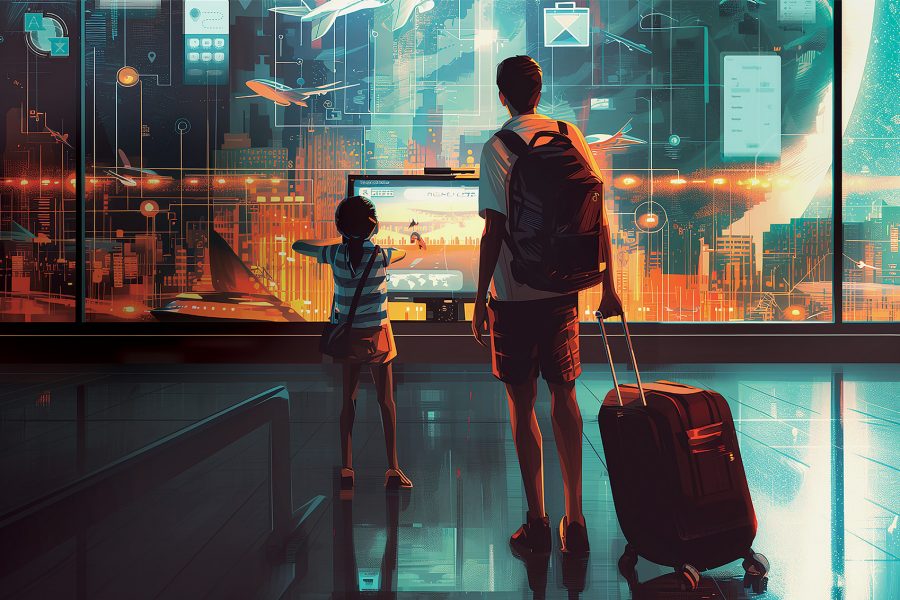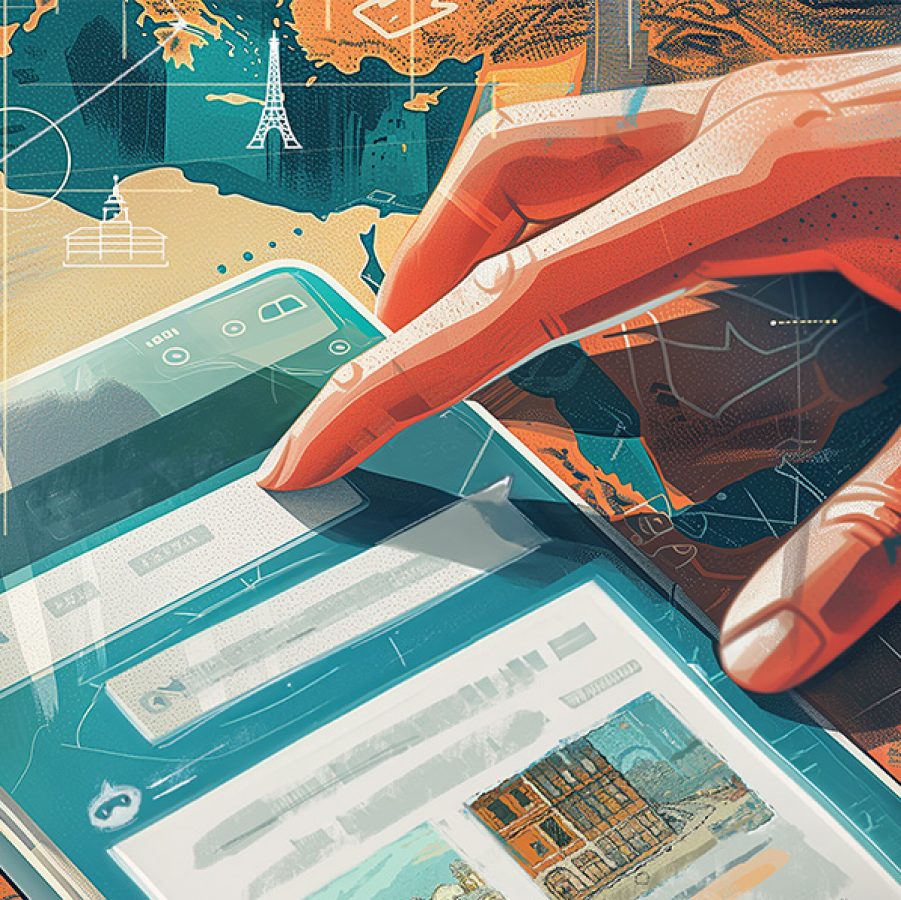Travel by AI

We travel to experience and discover, explore and expand our worldview. But even in this most human of activities, AI might be able to lend a helping hand. After all, if there’s one aspect of travel many of us would rather avoid, it’s planning. Finding the right destination, building itineraries, researching visas and anticipating language barriers can be time- and energy-intensive – even if the pay-off is priceless. Now, a wave of new AI-powered tools and platforms claims to reduce the mental load of travel – and provide personalised recommendations, too.
“AI has become a powerful tool, revolutionising the way a great number of travellers plan and experience their journeys,” says Amy Wei, senior director of product management at Trip.com Group. “From simplifying booking processes to providing real-time recommendations, AI has become a valuable resource for tech-savvy travellers.”
Most AI-enabled travel tools, like Trip.com’s TripGenie, are built using OpenAI’s ChatGPT platform. Instead of painstakingly scouring travel sites to gather information, you can ask these AI travel planner apps questions and receive targeted responses in a matter of seconds.
“Want to book a hotel in Bangkok? Simply tell TripGenie that you’re looking for a family-friendly hotel near the subway and it will show the perfect booking options,” Wei says.
Other services like Matador Network’s GuideGeek are accessed via WhatsApp and Instagram , and use AI technology to help travellers choose destinations, plan travel itineraries and figure out what to do in inclement weather.

Credit: Tony Leung
“There’s no need to fill out fields of information or select from dropdown menus – you just ask any travel question you can think of,” says Ross Borden, CEO of Matador Network. He gives an example query: “We are a family of four, including a five-year-old with autism. We like wildlife and animal experiences, beaches, road trips and great local food. What are some destinations we should consider?” Or: “I had a beach day planned but it’s pouring rain in Miami. What are some good indoor activities?”
What makes AI a potential gamechanger for travellers is its ability to provide personalised recommendations rather than generic search results, explains Andy Chun, an adjunct professor at the College of Business at City University of Hong Kong. “AI really understands consumers – you don’t have to go through many hurdles to find exactly what you’re looking for,” he says.
The best perk AI offers is relief from the mental load that comes with travel, says Neo Ping, a consumer tech analyst at trend forecaster WGSN . “Various minor stressors like picking the right hotel and accommodating dietary preferences can add up and detract from the experience,” she
says. “In an AI-enabled travel future, we could remove those problems with a simple ask like, ‘Can you pick me a hotel that’s child-friendly and walking distance from the city centre?’
“On the ground, we’ll be able to make simple requests to change plans quickly or find out information about an area without diving into our devices.”
Ping says the technology could be incorporated into products which translate conversations in real time, “effectively removing language barriers and making communication in foreign countries seamless.”
In two to three years, Chun says, AI-enabled tools may make travel even easier because they will be able to remember individual preferences.
“Right now, ChatGPT forgets everything you say each time you have a conversation,” he says. “In the future, each person will have a personalised ChatGPT that remembers previous conversations, all the trips you have taken, all the hotels you have been in and so forth. It will take all this information into consideration when it plans your next trip.”
For the time being, however, Chun recommends travellers fact check critical information generated by AI; he notes that AI can make things up if it can’t find what travellers are searching for.
“You might say, ‘give me a recommendation for a very nice, low-cost French restaurant in this location.’ If there isn’t one, it will make up one for you and be very convincing about it,” Chun says.
Important, too, is balancing concerns about privacy with the need to give AI tools personal information for them to perform better. “The more AI understands about a particular individual – their needs, their budget, their habits and preferences – the better solutions it will offer,” Chun says. “If you don’t tell AI anything, it’s going to give you a generic result.”
As the technology continues to advance, it’s set to have a profound impact on how we plan travel. “AI is the next big leap in travel planning, similar to the launch of online travel booking in the ’90s,” Borden says. “Within five to 10 years, AI will be the way most travellers book travel.”
Naturally, AI is only part of the puzzle. Some things remain distinctly human: the feeling of exploration, the joy of discovery. A restaurant recommendation garnered from a chance encounter; the neighbourhood bar you stumbled upon late one evening. AI can do the heavy lifting in helping us get there; it’s up to us to do the rest.
More inspiration
- China – the Chinese Mainland, Hong Kong SAR, Macao SAR and Taiwan Region
- Hong Kong SAR - English
- Chinese Mainland (China) - English
- Taiwan, China - English
- 香港特別行政區 - 繁體中文
- 中国內地 - 简体中文
- 中國台灣 - 繁體中文
- Africa
- South Africa - English
- Asia
- Bangladesh - English
- Korea - English
- Singapore - English
- Cambodia - English
- 한국 - 한국어
- Sri Lanka - English
- India - English
- Malaysia - English
- Thailand - English
- Indonesia - English
- Maldives - English
- ประเทศไทย - ภาษาไทย
- Indonesia - Bahasa Indonesia
- Myanmar - English
- Vietnam - English
- Japan - English
- Nepal - English
- Việt Nam - tiếng Việt
- 日本 - 日本語
- Philippines - English
- Australasia
- Australia - English
- New Zealand - English